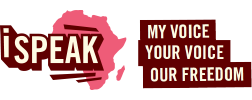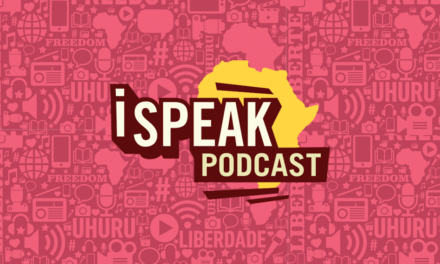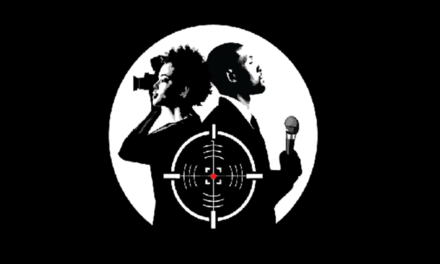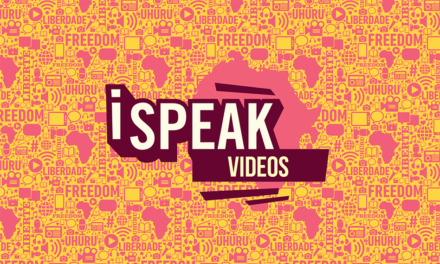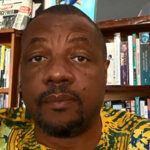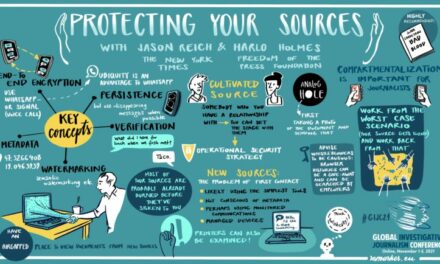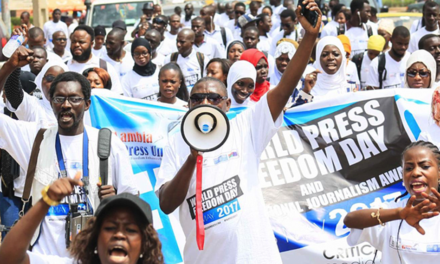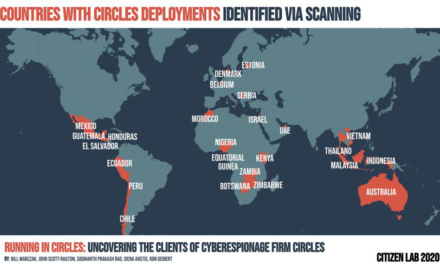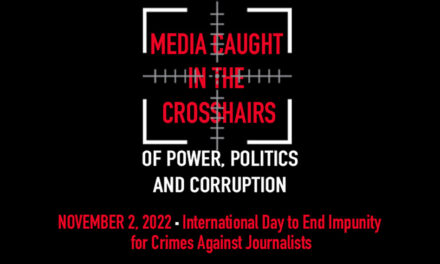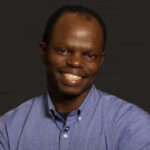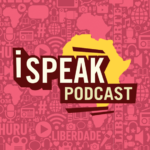
The invisibility of disability
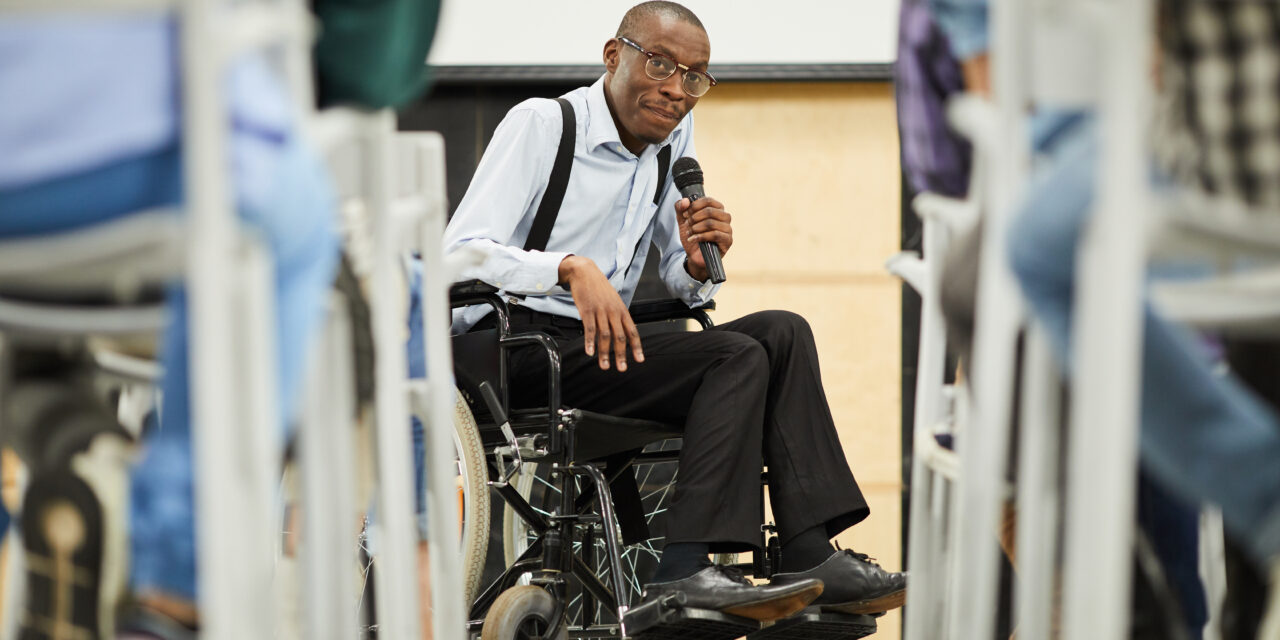
How persons with disabilities (PWDs) are covered by the media, points to a disturbing reality of how handicapped the media is in understanding their daily lives. The media has a blurry vision of the plight of PWDs, and are not listening to their concerns and needs. In looking at the how the media frames the PWD discourse, Victor Mabutho shares his eye opening experience sparked by a webinar on persons with disabilities.
Listening to presentations by expert panelists during a webinar convened by Collaboration on International ICT Policy for East and Southern Africa (CIPESA) on how the media can promote the rights of persons with disabilities – I learnt so much.
I also realized that I had no idea about what was happening in the realm of PWD rights. My initial engagement with the webinar was a little selfish really – I was planning on picking up a story idea. But it did more than that. It made me understand how the media reinforces stereotypes because it really is deaf and blind to how we can improve our reporting of the issues that speak to the interests and concerns of PWDs
Listening through the presentations literally and figuratively opened my eyes – to the little things that PWDs would like to see changing and the big things that need our spotlight. I was not prepared for the understanding that would come through.
It was my first time hearing about the United Nation’s Convention of the Rights of Persons with Disabilities (CPRD) and it’s significant because it was adopted way back in 2006 and yet even the one critical intent: “to promote, protect and ensure the full and equal enjoyment of all human rights and fundamental freedoms by all persons with disabilities, and to promote respect for their inherent dignity” falls far short of self-actualisation.
I learnt, without being surprised, that the African Union had its own regional instrument – the Protocol to the African Charter on Human and People’s Rights of Persons with Disabilities in Africa which has the same purpose as the CPRD. What is horrifying and worrying, is that it has yet to come into force as ONLY 9 countries out of 54 African nations have ratified it.
As these discussions usually do and of course as is inevitable – the spotlight landed on the media.
Journalists were flagged for ‘othering’ PWDs in the stories they cover – participants reflected on how the media does not knowledgeably reflect the perspective of PWDs and instead falls into the trap of using stereotypical language and relying on assumptions.
“The media will focus on a person with a disability as having done something extraordinary and report it as a novel achievement or undertaking, yet the person is actually doing something that is normal and part of their everyday routine. We think we are doing stories that show ‘their plight’ or the challenges they face – which can be a good thing. But it’s how we frame that narrative that matters,” explained Richard Mativu from Sense International, Kenya during the webinar.
Participants mentioned that celebrating the media for using local languages is a given, but when journalists report on PWDs or host and anchors talking about them, the traditional terms that continue being used are often offensive and demeaning.
In sharing his thoughts on why the media covers PWDs the way they do, Ugandan lecturer, Dr Abdul Busuulwa, highlighted the underlying problem. “The newsroom is closed to us. That is where the tragedy starts. We need to be included. “If newsrooms and platforms were open to us in terms of employment or even consulted us on certain stories, there would have been a higher chance we would be woven into the DNA of their stories, but they don’t, which is why the ‘we and them’ situation continues.”
“I studied mass communications, but was never able to work in a newsroom. I applied to many radio stations and newspapers, but none was able to give a satisfactory answer as to why they didn’t hire me even though I attained several degrees and was taught by expert lecturers. I only worked as a freelancer for a short time,” he adds.
Beyond this insightful meeting, I spoke to renowned cricket commentator and broadcaster, Zimbabwean Dean du Plessis who explains how the focus of an article takes away from the heart of the issue. “I don’t want to be featured or recognised as the world’s first blind cricket commentator. That means nothing to me.” For du Plessis – the focus on his blindness overshadows that of his talent and so that is an impediment in itself. “I want to be recognized for the quality of my work as a journalist,” he explains.
“There has to be a very big shift in people’s belief. Broadcasters have to overcome this fear of employing disabled people. You can hammer on the door all you like churning out the most amazing podcasts or articles, but if they don’t believe in us, if they continue to be afraid, we will not see that change in my generation.”
These insights made me ask myself: If we as the media are unable to get beyond these limitations, how can we really write so that there is change.
Did we think about how we put out information on COVID-19? Did the media contemplate how we need to make this information accessible to PWDs.
As Agness Chindimba who works for Deaf Women Included in Zimbabwe points out: “COVID impacted the way we work and operate especially when delivering information around gender-based violence and sexual reproductive health rights to women and girls with disabilities. Access to information about COVID-19, in the early days of the pandemic, was very difficult, as there were no interpreting of information into accessible format like sign language, large print and braille”.
When I think about all this, I realise that in the context of COVID-19, what is already complex situation for PWDs actually threatens to push them off the edge.
From not being heard to not being seen at all – that is the dilemma persons with disabilities are currently facing.
The media has to step up to its role of shaping opinions and attitudes on disability. It has to take a keen and active interest in PWD rights, going the extra mile to inspire acceptance and accommodate differently-abled people. As an individual, I really do need to change my perspective about PWDs, because they are human first and they deserve our respect if they are to keep their dignity.
